Idea by
Javier Rocamonde and Natalia Alvaredo (taller bivaque), Adrian Río Lado (Datum Arquitectura), Gemma Milà and Corentin Berger (Atelier Berger Milà), Emmanuelle Blondeau and Léonard Cattoni
Call for ideas 2020
KEEP THE FIELDS!
KEEP THE FIELDS!
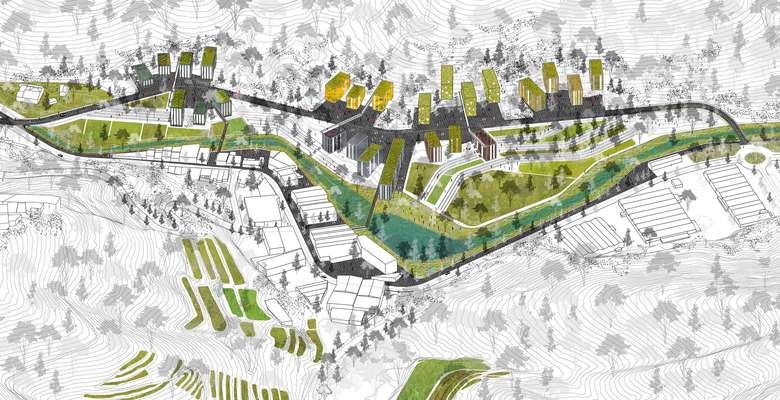
- Site-specific cases
Traditionally, in our productive landscapes the fertile land is usually found in the plains of the valleys. As a result, this type of land had the highest value, and therefore, was kept unbuilt to ensure primary production. As architecture can deal with adverse topography, such as steep slopes, constructions were built in adjacent areas and freed all the land with favourable conditions for food production. However, the expansion model of urban areas set economic pressure on the plain and fertile fields, becoming more profitable building houses than cultivating the land.
Our proposal for Sant Climent de Llobregat aims to reverse this trend, highlighting the value of the land as a productive resource over the value of the land as an available base for buildings. The proposal will help to diversify the different values of the land and architecture will take the land not suitable for food production but suitable to build. This is the reason why we claim KEEP THE FIELDS!
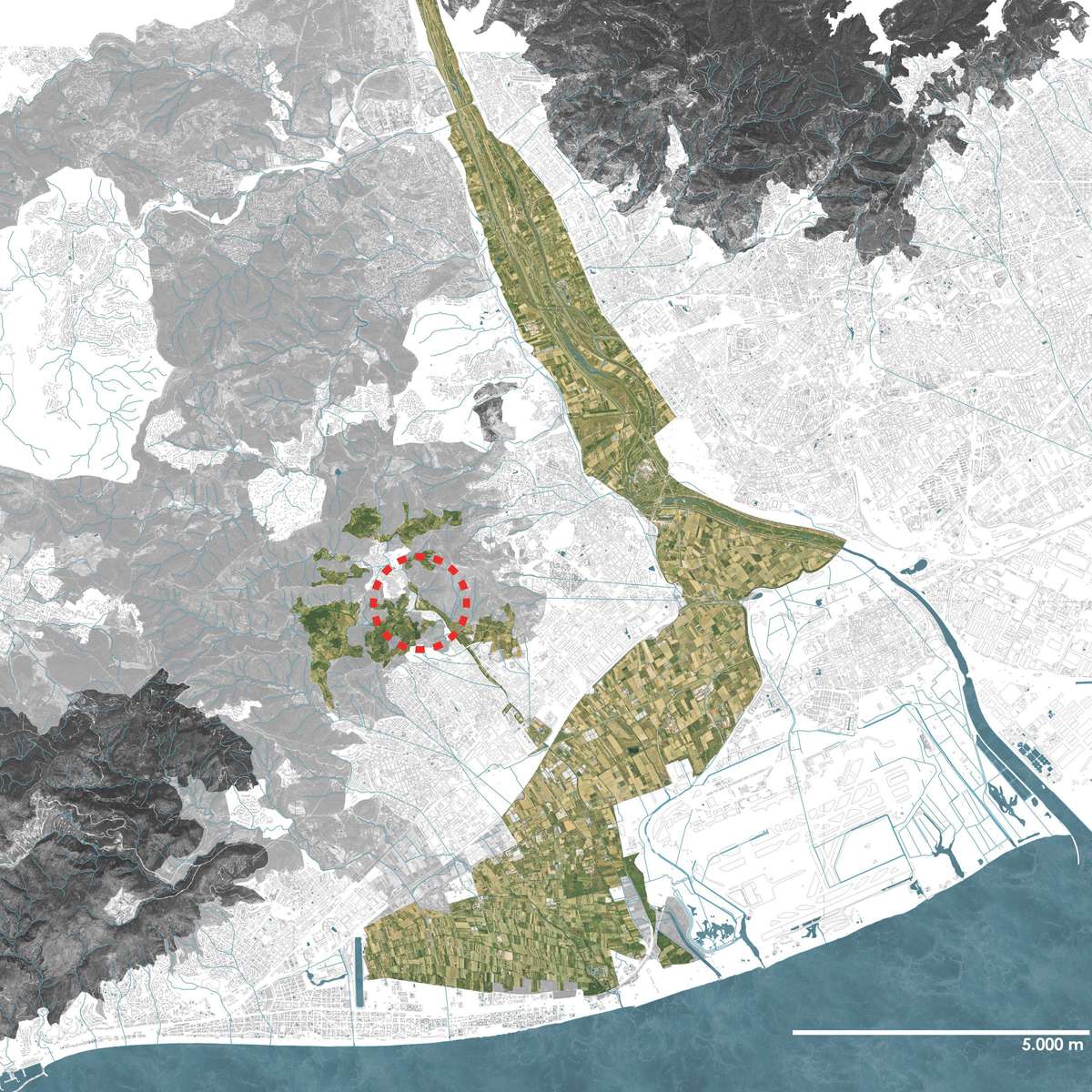
Sant Climent in the Baix Llobregat
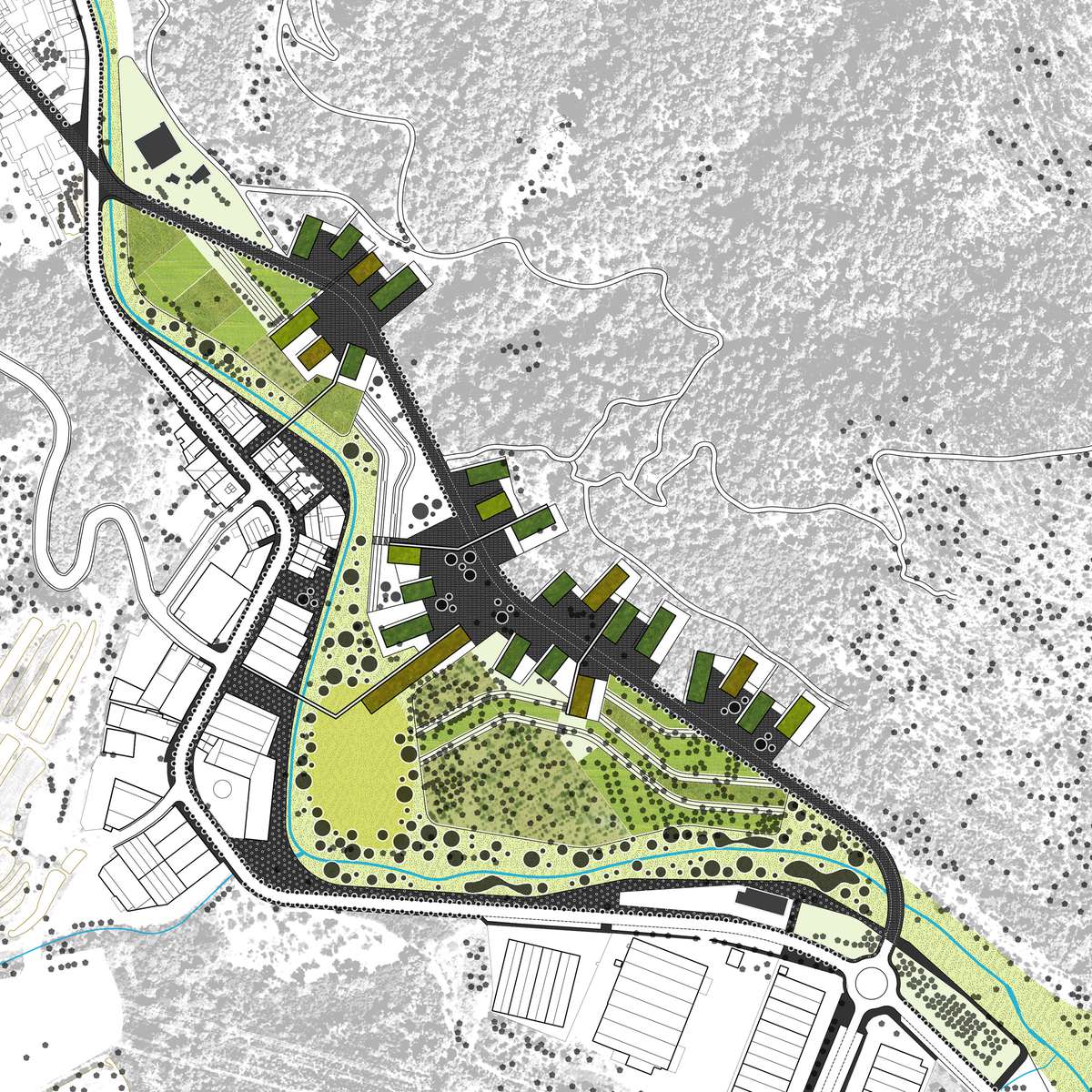
The productive-environmental corridor of the Sant Climent Watercourse

The Valley Section
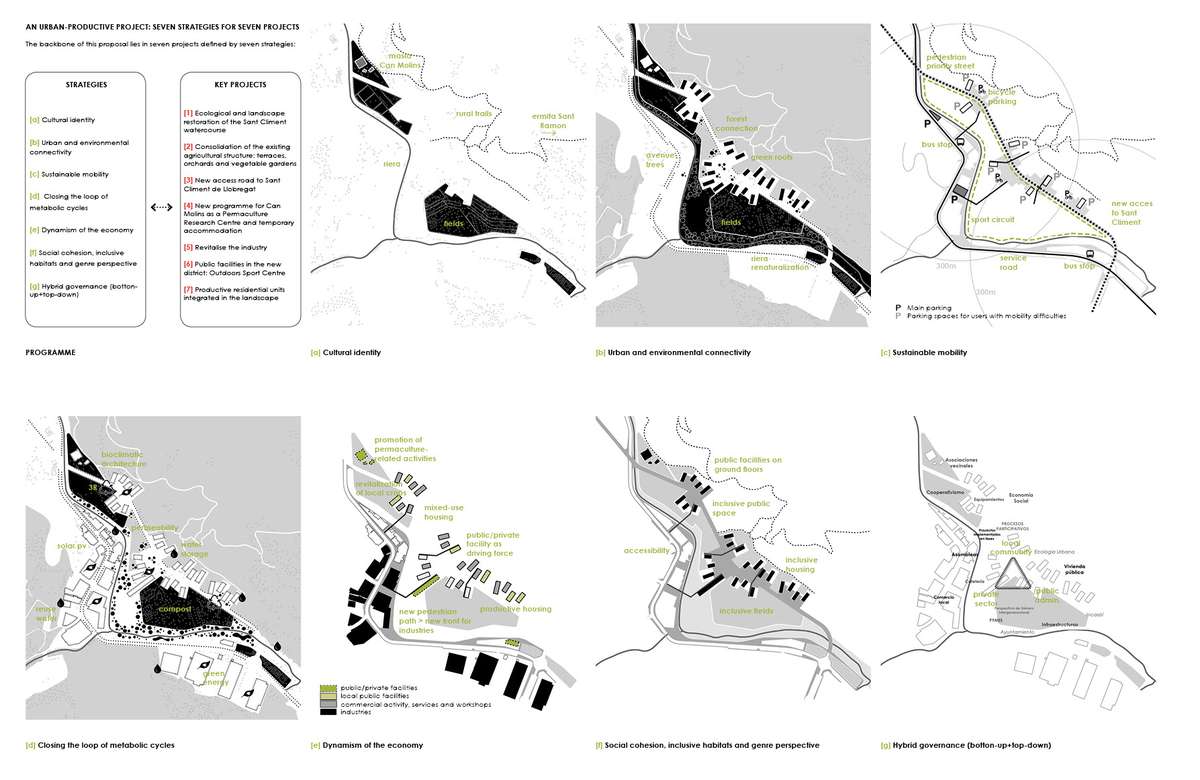
Seven strategies for seven projects
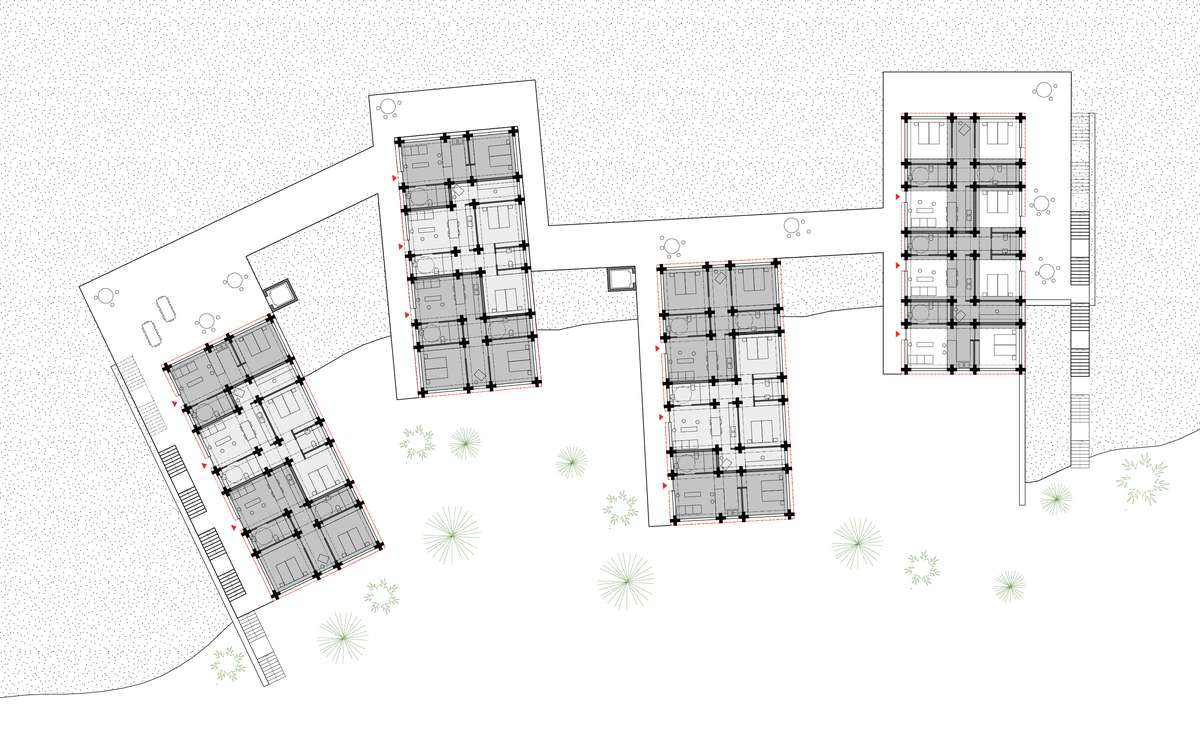
Architectures to dwell, socialise and produce
KEEP THE FIELDS!
KEEP THE FIELDS!

- Site-specific cases
Traditionally, in our productive landscapes the fertile land is usually found in the plains of the valleys. As a result, this type of land had the highest value, and therefore, was kept unbuilt to ensure primary production. As architecture can deal with adverse topography, such as steep slopes, constructions were built in adjacent areas and freed all the land with favourable conditions for food production. However, the expansion model of urban areas set economic pressure on the plain and fertile fields, becoming more profitable building houses than cultivating the land.
Our proposal for Sant Climent de Llobregat aims to reverse this trend, highlighting the value of the land as a productive resource over the value of the land as an available base for buildings. The proposal will help to diversify the different values of the land and architecture will take the land not suitable for food production but suitable to build. This is the reason why we claim KEEP THE FIELDS!
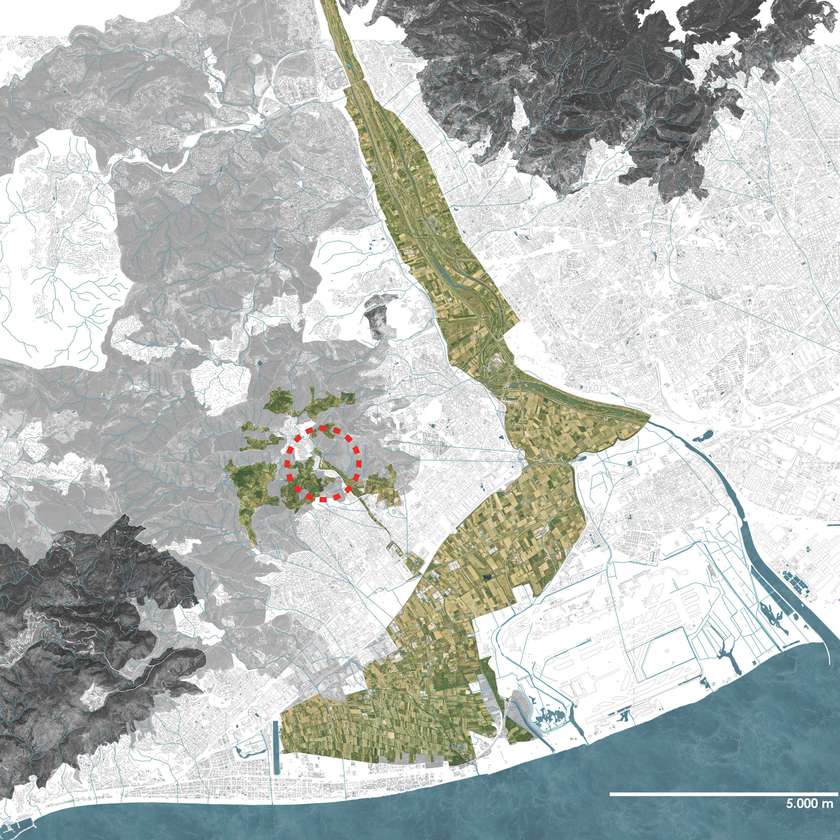
Sant Climent in the Baix Llobregat
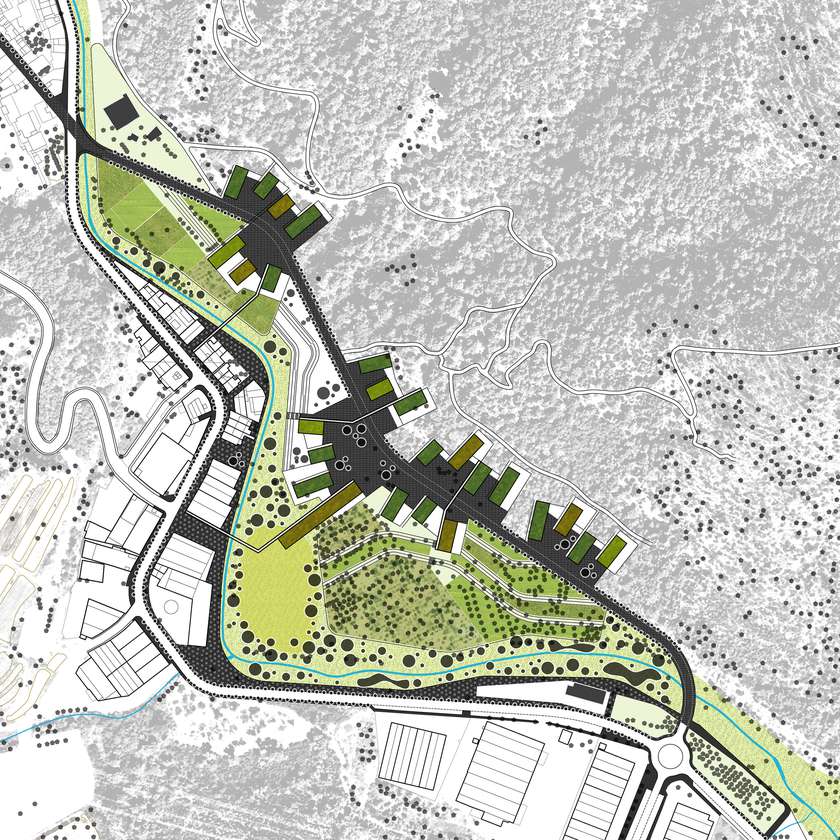
The productive-environmental corridor of the Sant Climent Watercourse

The Valley Section
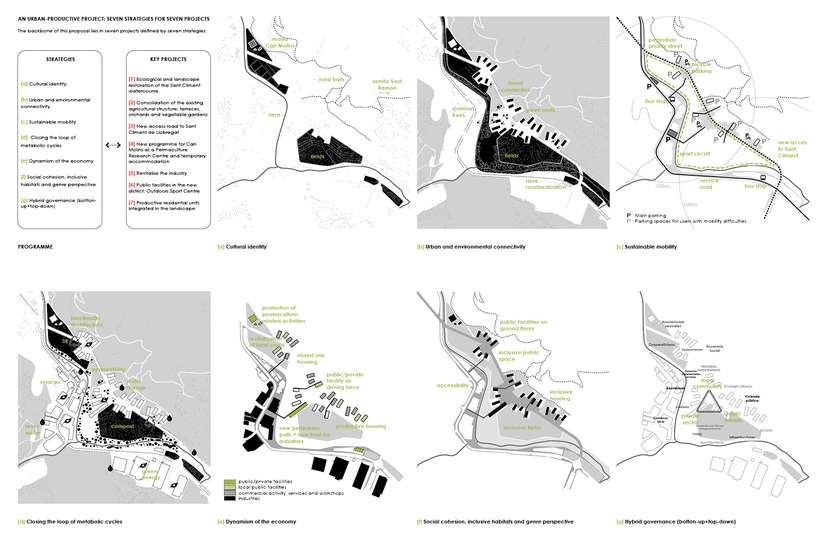
Seven strategies for seven projects
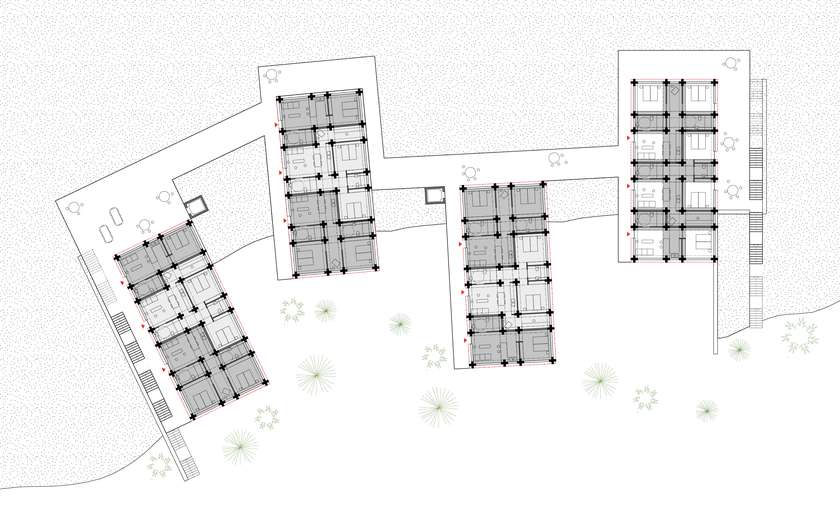
Architectures to dwell, socialise and produce